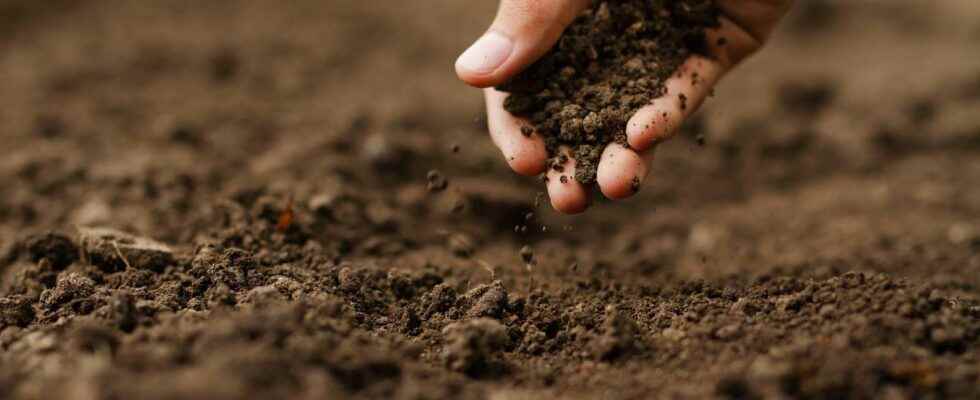Continuously cultivated land becomes depleted over time with less and less nutrients. Know how to fertilize and enrich it all year round to have beautiful blooms, tasty vegetables, to sum up a beautiful flower garden or balcony. With natural materials, how to amend the soil to nourish it and promote the life of the soil?
You will also be interested
To always have a lush garden, a rich vegetable patch or an orchard with abundant crops, remember to feed the soil regularly. Enjoy materials free, available in the garden. Here are six natural materials that will fertilize your soil.
Bring compost
By recycling green and brown materials from the garden and the house, you will obtain a compost of good quality. Once decomposed and ripe, spread it on the ground or bury it in plant beds, at the foot of trees orchard or vegetable garden. On a balcony, scratch a handful of compost on the surface of the pots to feed the plants. Year round, bring this rich, free amendment to the garden. When planting, add a few handfuls of compost to the soil. Rain or watering will spread the nutrients necessary for the proper development of plants.
Sowing green manures
After summer crops that have depleted a lot of nutrients in the soil, sow green manures which will enrich the soil. Plants like mustard, rye, phacelia, clover and many others are grown on empty spaces in the vegetable garden. Before going to seed, they are mowed or crushed then left on the ground to decompose on the surface. You can use crop rotation in the vegetable garden to change the plant and the area to be sown each year.
Use RCW
Make your own wood fragmented ramial (BRF) at the foot of shrubs and hedges. With a grinder, grind the waste pruning (avoiding the branches of conifers acids) to get this shredded shavings that will, once in place, enrich the surface layers of your soil, bring a humus balanced, preserve moisture and prevent the development of weeds. A simple layer of one to two centimeters renewed all year round is enough.
Enrich with dead leaves
In fall, take advantage of this free resource that falls in abundance to create a natural amendment. They will degrade and assimilate to the ground. Save them to add to the compost heap all year round or prepare a leaf mold recovered.
Mulch all year round
Use the lawn mowingthe leaves of fern or straw at the foot of the plants to conserve humidity, fight against weedscreate protection against heat or the cold but above all enrich the soil by decomposing. Mulch all year round because land must not remain bare and in danger from the vagaries of the weather. This organic mulch is layered 10 to 15 centimeters thick.
bring manure
Rich material, integrate this organic amendment in autumn when you are going to prepare the soil of the vegetable garden. You can spread and incorporate the manure to the ground two months before the first plantations or sowing. Microbial life will decompose it over time and from the spring, vegetables or aromatic will benefit from this enriched land.
Interested in what you just read?
